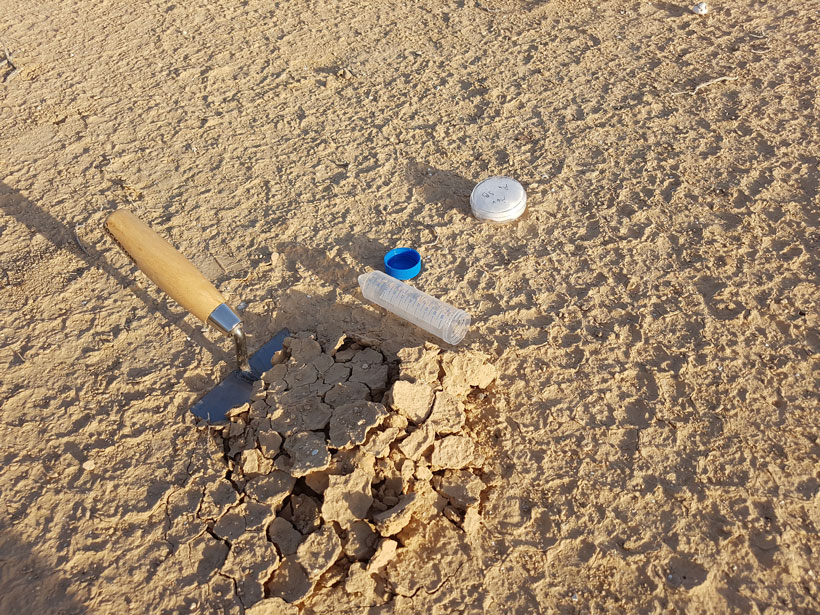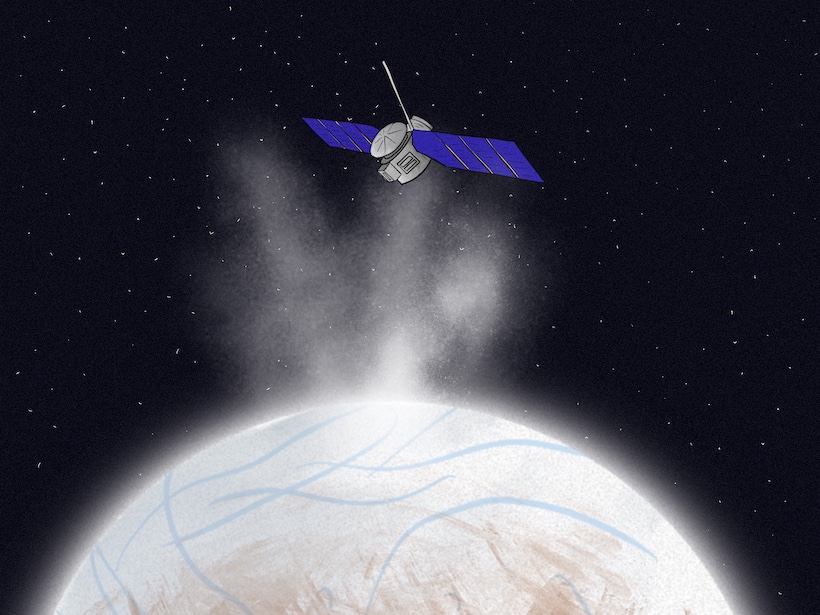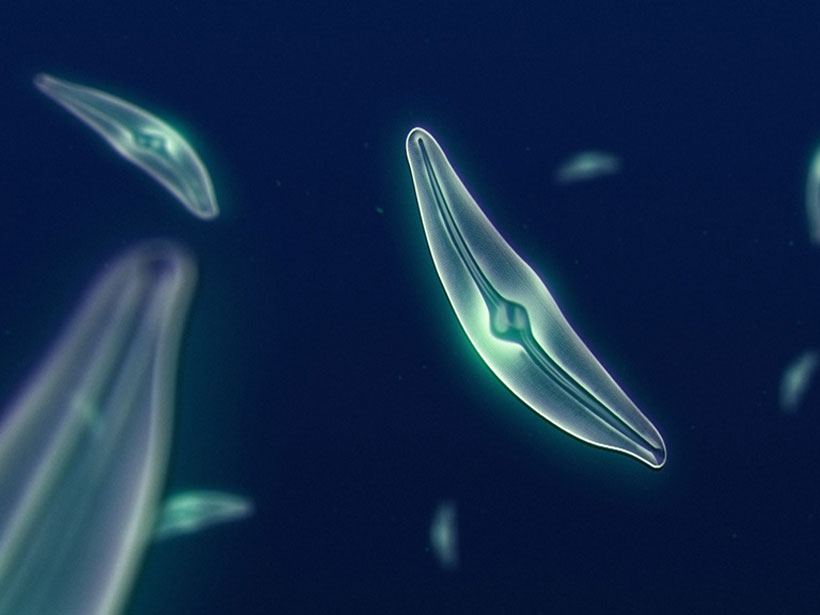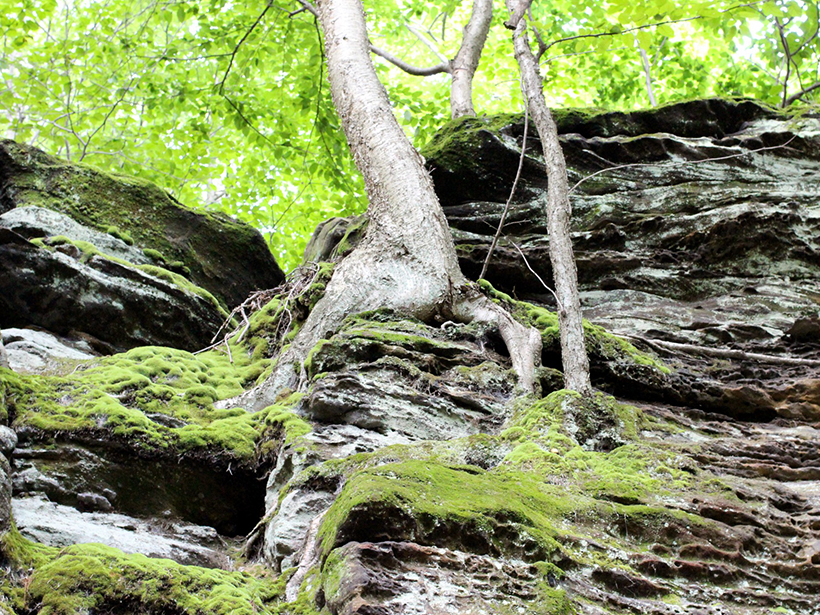Without water, photosynthesis shuts down. To survive dry spells, desert microbes scavenge traces of hydrogen from the air and burn it for energy. Some even use hydrogen to fuel carbon fixation.
bacteria & microbes
Esta búsqueda por vida alienígena comienza con la destrucción de bacterias en la Tierra
Algún día, un catálogo de fragmentos moleculares podría ayudar a científicos a identificar vida extraterrestre en las lunas heladas de nuestro sistema solar.
Soil Chips Help Scientists Spy on Fungal Navigation
Soil chips provide a micrometer-resolution window into life underfoot, shedding light on how fungi behave when navigating soil’s mazes.
How Did Diatoms Evolve to Swap Zinc for the Toxic Metal Cadmium?
New network analysis suggests that zinc and cadmium sulfides weathered simultaneously in geological history, making cadmium a suitable substitute in photosynthetic pathways when zinc was scarce.
This Search for Alien Life Starts with Destroying Bacteria on Earth
Someday, a catalog of molecular fragments might help scientists identify extraterrestrial life on our solar system’s icy moons.
Researchers Unearth Bedrock Carbon and Water Dynamics
Deep tree roots bring respiring microbes into broken bedrock, generating carbon that’s released into the environment. New research explores this oft-overlooked carbon source.
Will Rising Temperatures Make Rice Too Toxic?
Greenhouse experiments reveal how higher temperatures act to elevate arsenic levels in rice and may help focus efforts to solve a crisis threatening food systems around the world.
Chemical-Shuttling Bacteria Follow Earth’s Magnetic Field
Magnetotactic bacteria shunt sulfur, nitrogen, and other important elements between oxygen-poor and oxygen-rich waters.
¿Podría la Vida Estar Flotando en las Nubes de Venus?
Si están presentes, los microbios podrían explicar patrones de evolución en la atmósfera planetaria de Venus, al observarse con luz ultravioleta.










